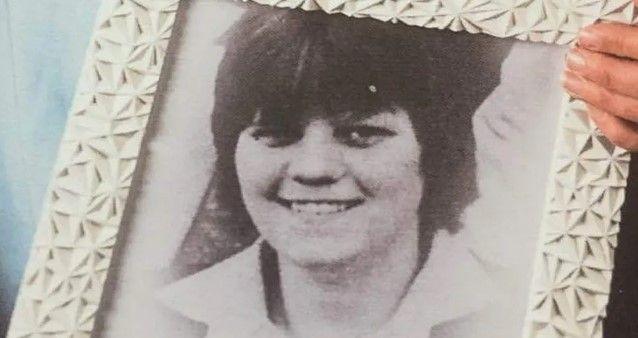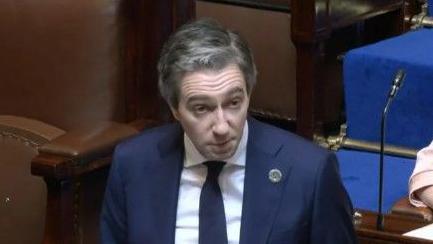Stardust apology 'too late', says victim's brother

Susan Morgan from Derry was one of 48 people, including three from Northern Ireland, who died in the 1981 Stardust disaster
- Published
The brother of a woman who died in the Stardust fire has said an apology by the Taoiseach (Irish prime minister) Simon Harris has come "43 years too late".
On Tuesday, Mr Harris said families who lost loved ones had been "failed by the state", as he read out an apology in the Dail (lower house of the Irish Parliament).
Forty-eight young people died in the blaze at the Stardust nightclub in Artane, north Dublin, on Valentine's night in 1981.
Mr Harris said the Stardust families had been "forced to endure a living nightmare".
"We say formally and without any equivocation we are sorry. We failed you when you needed us the most," he said.
Last week, a jury in the inquest into the fire found the victims had been unlawfully killed.
On Saturday, more than 70 survivors and relatives met Mr Harris at Government Buildings in Dublin.
The brother of Londonderry woman Susan Morgan, Terry Morgan, told BBC Radio Foyle's North West Today programme that he personally did not think an apology “does anything” and believed it had come too late.

The taoiseach made a state apology to the Stardust families and victims on Tuesday
“It’s very good but what’s it going to do? It’s not going to do anything really - It’s 43 years too late for a start.
“I lost my only sister a long time ago, the grief passed and then all of this has all come back up again and brought back a lot of bad memories.”
Mr Morgan said his sister was a bubbly person who loved sport and was particularly passionate about football.
He said Susan was missed every single day and that her death had been devastating for their family.
“The family took it very badly. Susan was just 19 when she was killed,” he explained.
“It was a terrible situation at that time because she couldn’t be identified.”
Mr Morgan said that Susan’s body could only be identified by the clothes she was wearing on the night of the fire by her friend Yvonne Graham.
Yvonne welcomed the taoiseach's apology, but questioned why it had taken this long.
'It won't bring her back'
Mr Morgan said that for many Stardust families the apology would be a welcome development but that many relatives, like his own parents, never lived to hear it.
“The apology could have come sooner, it could have come a lot sooner – 43 years is a long time,” he said.
“It came across very well but at the end of the day it does nothing – it won’t bring her back."
Mr Morgan said he holds "no more anger" over what happened.
“The anger is gone, no more anger, that anger is gone,” he said.